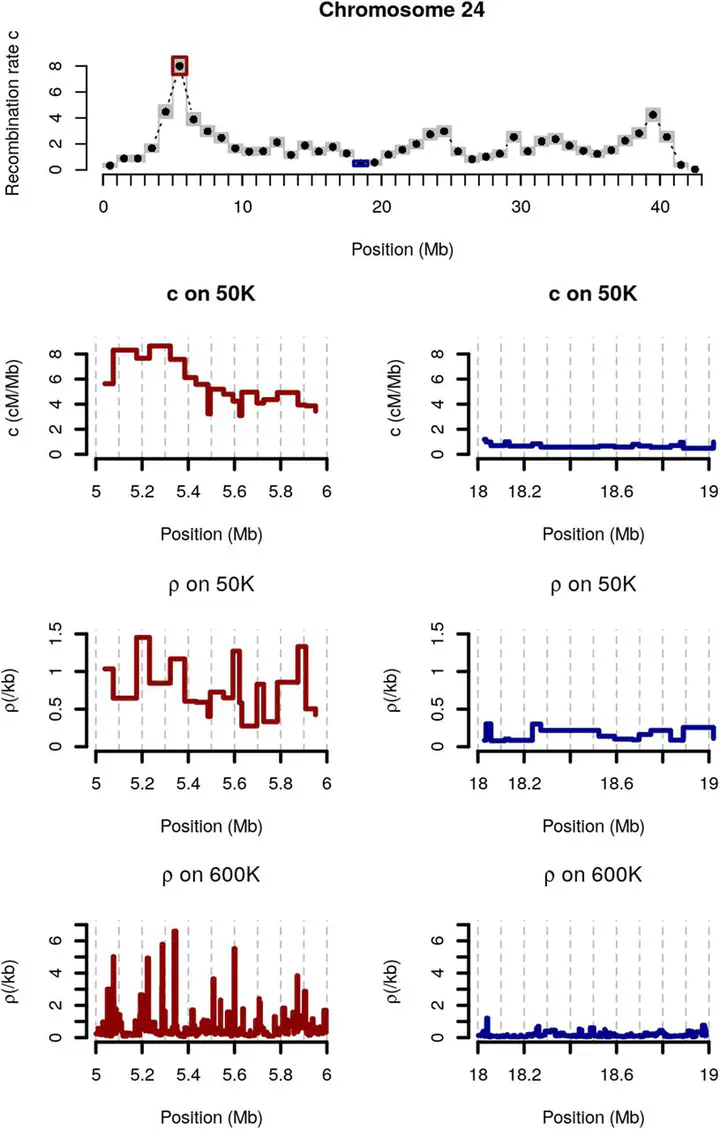 Comparison of meiotic vs. LD-based recombination rates
Comparison of meiotic vs. LD-based recombination ratesAbstract
Recombination is a complex biological process that results from a cascade of multiple events during meiosis. Understanding the genetic determinism of recombination can help to understand if and how these events are interacting. To tackle this question, we studied the patterns of recombination in sheep, using multiple approaches and data sets. We constructed male recombination maps in a dairy breed from the south of France (the Lacaune breed) at a fine scale by combining meiotic recombination rates from a large pedigree genotyped with a 50K SNP array and historical recombination rates from a sample of unrelated individuals genotyped with a 600K SNP array. This analysis revealed recombination patterns in sheep similar to other mammals but also genome regions that have likely been affected by directional and diversifying selection. We estimated the average recombination rate of Lacaune sheep at 1.5 cM/Mb, identified ̃50,000 crossover hotspots on the genome, and found a high correlation between historical and meiotic recombination rate estimates. A genome-wide association study revealed two major loci affecting interindividual variation in recombination rate in Lacaune, including the RNF212 and HEI10 genes and possibly two other loci of smaller effects including the KCNJ15 and FSHR genes. The comparison of these new results to those obtained previously in a distantly related population of domestic sheep (the Soay) revealed that Soay and Lacaune males have a very similar distribution of recombination along the genome. The two data sets were thus combined to create more precise male meiotic recombination maps in Sheep. However, despite their similar recombination maps, Soay and Lacaune males were found to exhibit different heritabilities and QTL effects for interindividual variation in genome-wide recombination rates. This highlights the robustness of recombination patterns to underlying variation in their genetic determinism.